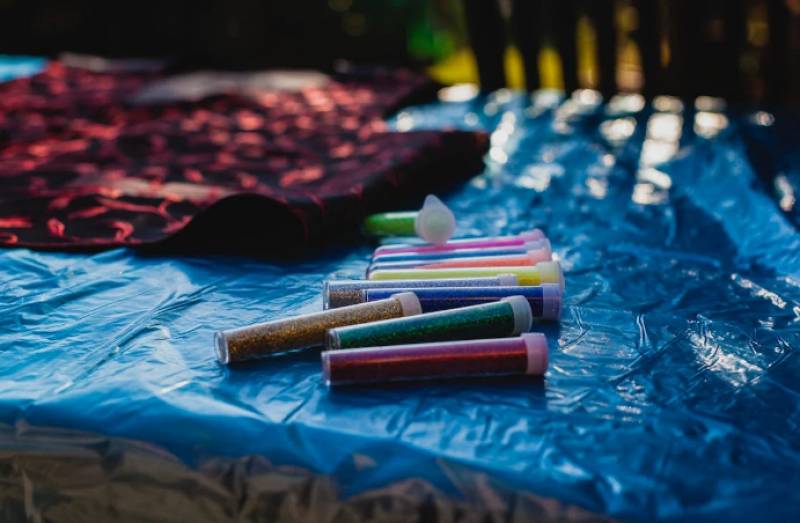article_detail
Date Published: 18/10/2023
European Union bans the sale of glitter
Cosmetics, detergents and other personal care products containing microplastics will all be prohibited in Spain

On Tuesday October 17, the EU implemented its ban on loose glitter and products that contain microbeads, a move that should prevent the release of almost half a million tonnes of microplastics into the environment.
The legislation, passed on September 25, still allows the sale of biodegradable, natural and water-soluble glitter in Spain and other countries and stores that already have the banned products on their shelves will be allowed to sell them until stock runs out.
Conversely, glitter made from inorganic materials is still ok, as are glitter-covered sequins and beads that are designed to be sewn onto other fabrics. Snow globes containing glitter are also still allowed, since the harmful particles are protected by glass.
For now, the main target is loose glitter but over the next few years Brussels also plans to crack down on its use in cosmetics, nail products and other personal care items.
Ultimately, as of Tuesday, the legislation effects cosmetics, toys, medicines and detergents which contain intentionally added microplastics that are released during use, as well as the artificial grass used in sports fields.
Specifically, cosmetics that use microplastics as exfoliants will be phased out, but depending on the product the EU is allowing between 4 and 12 years for companies to incorporate alternative ingredients.
With regard to artificial grass on sports fields and pitches, owners and managers will be given a period of 8 years to comply.
Within five years, it will also be prohibited to sell detergents, waxes, polishes and air freshener products that contain microparticles of synthetic polymers, as well as controlled-release fertilizers. In six years, the sale of fragrances that have these types of microparticles will not be allowed.
The European Commission has promised to have “a detailed Q&A document to help with the implementation of the new rules” available to the public by the end of the year.
The reason behind the ban is that the tiny microplastics contained in glitter and cosmetic microbeads easily pass into the water filtration system and the soil, where they can remain intact for centuries. Here, they cause untold harm to wildlife and eventually make their way into the human food chain.
Under the Zero Pollution Action Plan, the EU has committed to reducing microplastic waste by 30% by the year 2030. The glitter ban is the first step towards that goal.
Image: Freepik
Loading
See more environmental news about Spain:
OR
Sign up for the Spanish News Today Editors Roundup Weekly Bulletin to get a comprehensive email with all the week’s news for Spain, Murcia, Alicante and Andalucía.
Get a sneak peek – here are a few of our recent Subscription Bulletins:
Discount Special Offer subscription:
36.95€ for 48 Editor’s Weekly News Roundup bulletins!
Please CLICK THE BUTTON to subscribe.
Contact Spanish News Today: Editorial 966 260 896 /
Office 968 018 268




























